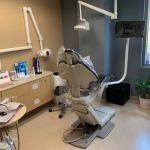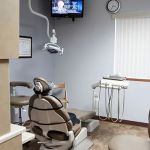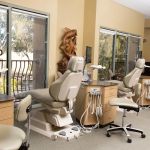Importance of Oral Hygiene for Seniors: Maintaining Healthy Teeth and Gums
As we age, taking care of our oral health becomes even more crucial. Seniors often face specific challenges that can affect their teeth and gums, which is why maintaining good oral hygiene is vital. In this article, we will explore the importance of oral hygiene for seniors, discuss the unique issues they may encounter, and offer practical advice on how to maintain healthy teeth and gums throughout the golden years.
1. Why Oral Hygiene Matters for Seniors
Good oral hygiene is essential for everyone, but for seniors, it’s even more important due to the increased risk of dental and gum issues that come with aging. Poor oral hygiene can lead to a variety of problems, including tooth decay, gum disease, and tooth loss. These issues not only affect the appearance and function of your teeth but can also impact your overall health. Research has shown that poor oral health can be linked to other serious conditions such as heart disease, diabetes, and respiratory infections.
2. Common Oral Health Issues for Seniors
As we age, several factors can make maintaining oral health more challenging. Here are some common issues that seniors may face:
- Dry Mouth: Many older adults experience dry mouth due to medications, certain health conditions, or natural aging. Saliva is essential for neutralizing acids in the mouth and protecting teeth from decay. Without enough saliva, seniors are more vulnerable to cavities and gum disease.
- Gum Disease: Gum disease, or periodontal disease, is a common problem among seniors. It can lead to gum recession, tooth loss, and infections. In its early stages, gum disease may not cause noticeable pain, making it important to get regular checkups.
- Tooth Decay: While tooth decay can happen at any age, seniors are more susceptible due to factors like dry mouth, gum recession, and older fillings that may deteriorate over time.
- Tooth Sensitivity: Seniors often experience increased tooth sensitivity as enamel wears down and gums recede, exposing the underlying dentin.
3. Tips for Maintaining Good Oral Hygiene in Older Adults
Fortunately, many of the dental problems seniors face can be prevented or managed with proper oral care. Here are some tips for maintaining healthy teeth and gums:
- Brush Twice a Day: Brushing your teeth twice daily with fluoride toothpaste is the foundation of good oral hygiene. Use a soft-bristled toothbrush to avoid irritating sensitive gums, and make sure to brush for at least two minutes.
- Floss Daily: Flossing helps remove food particles and plaque from between the teeth, where your toothbrush may not reach. For seniors, flossing is especially important as it helps prevent gum disease and tooth decay.
- Use Mouthwash: Mouthwash can help reduce plaque, fight gum disease, and keep your breath fresh. Look for mouthwashes that are alcohol-free, as alcohol can further dry out the mouth.
- Stay Hydrated: Drink plenty of water throughout the day to help alleviate dry mouth. You can also chew sugar-free gum or use saliva substitutes if necessary.
- Visit the Dentist Regularly: Regular dental checkups are essential for catching problems early before they become serious. Make sure to schedule checkups at least twice a year and address any concerns with your dentist.
4. Special Considerations for Denture Wearers
For seniors who wear dentures, oral hygiene is just as important. Dentures should be cleaned regularly to prevent bacteria buildup and gum irritation. It’s also crucial to remove dentures before bed to allow your gums to rest and reduce the risk of infections. Additionally, seniors should ensure their dentures fit properly, as ill-fitting dentures can cause sores and discomfort.
5. How Poor Oral Hygiene Affects Overall Health
Maintaining oral health isn’t just about keeping your teeth and gums in good shape—it can also have a significant impact on your overall health. Research has found that poor oral hygiene and untreated gum disease can contribute to a variety of systemic health issues in seniors. These include:
- Heart Disease: Gum disease has been linked to an increased risk of heart disease and stroke. The bacteria from gum infections can enter the bloodstream and contribute to inflammation in the heart and blood vessels.
- Diabetes: Gum disease can make it harder to control blood sugar levels, leading to complications for seniors with diabetes.
- Respiratory Infections: Bacteria from the mouth can be inhaled into the lungs, leading to respiratory issues such as pneumonia, especially in older adults with weakened immune systems.
6. The Role of Diet in Oral Health
A healthy diet is crucial for maintaining good oral hygiene in seniors. Foods rich in vitamins and minerals, such as fruits, vegetables, and dairy products, help support healthy teeth and gums. Seniors should limit sugary foods and drinks, as these can contribute to tooth decay and gum disease. Drinking plenty of water also helps to keep the mouth hydrated and flush away food particles.
7. Conclusion
Oral hygiene is a critical aspect of health that seniors should prioritize. By following good dental care practices, visiting the dentist regularly, and maintaining a healthy diet, seniors can keep their teeth and gums in excellent condition well into their later years. Investing in oral hygiene now can lead to a lifetime of better health, comfort, and confidence.







 Word of Mouth Designs0.0 (0 review)
Word of Mouth Designs0.0 (0 review) West Dundee Dental4.0 (33 review)
West Dundee Dental4.0 (33 review) Plaza Dentistry5.0 (612 review)
Plaza Dentistry5.0 (612 review) Elan Dental - Raleigh5.0 (99 review)
Elan Dental - Raleigh5.0 (99 review) Prem Kumar, DDS3.0 (3 review)
Prem Kumar, DDS3.0 (3 review) Olsen Orthodontics4.0 (77 review)
Olsen Orthodontics4.0 (77 review) The Importance of Oral Health Education During Pregnancy for a Healthy Pregnancy
The Importance of Oral Health Education During Pregnancy for a Healthy Pregnancy Best Tips for Brushing Your Teeth Properly for Healthy Gums: Essential Techniques for Oral Health
Best Tips for Brushing Your Teeth Properly for Healthy Gums: Essential Techniques for Oral Health Why Skipping Dental Checkups Can Lead to Bigger Oral Health Problems
Why Skipping Dental Checkups Can Lead to Bigger Oral Health Problems Advantages of Porcelain Dental Restorations
Advantages of Porcelain Dental Restorations How Can Diabetes Cause Tooth and Gum Problems? Preventing and Managing Oral Health Issues
How Can Diabetes Cause Tooth and Gum Problems? Preventing and Managing Oral Health Issues Healthy Habits for Promoting Good Oral Health and Hygiene: Tips for a Healthy Smile
Healthy Habits for Promoting Good Oral Health and Hygiene: Tips for a Healthy Smile